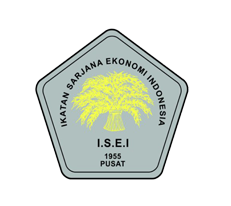PENGARUH PENDAPATAN TERHADAP POLA PENGELUARAN KONSUMSI RUMAH TANGGA DI KOTA SIBOLGA TAHUN 2022 (IMPLIKASI FUNGSI KONSUMSI KEYNES)
https://doi.org/10.34308/eqien.v11i02.920
Keywords:
Household Income and Household Consumption PatternAbstract
In this study, the author takes the title "Influence of Income on Household Consumption Expenditure Patterns in Sibolga City in 2022 (Implications of Keynes Consumption Function)'. This topic was raised based on the increase in income that will affect household consumption spending patterns, both for durable goods and non-durable goods. The main purpose of this study is to estimate how income variables can affect household consumption expenditure patterns in Sibolga City in 2022. The data used are cross-sectional data (data according to time) collected from 40 households throughout Sibolga City. While the variable to be estimated is the pattern of household consumption. Based on the estimation results using the multiple regression method using SPSS 25 software, the measure of goodness of fit (R2) is 49.6%, the independent variable is household consumption patterns (KRT) and is significant to household income (PRT). Meanwhile, partially household consumption has a positive and significant effect on household income in Sibolga City.










